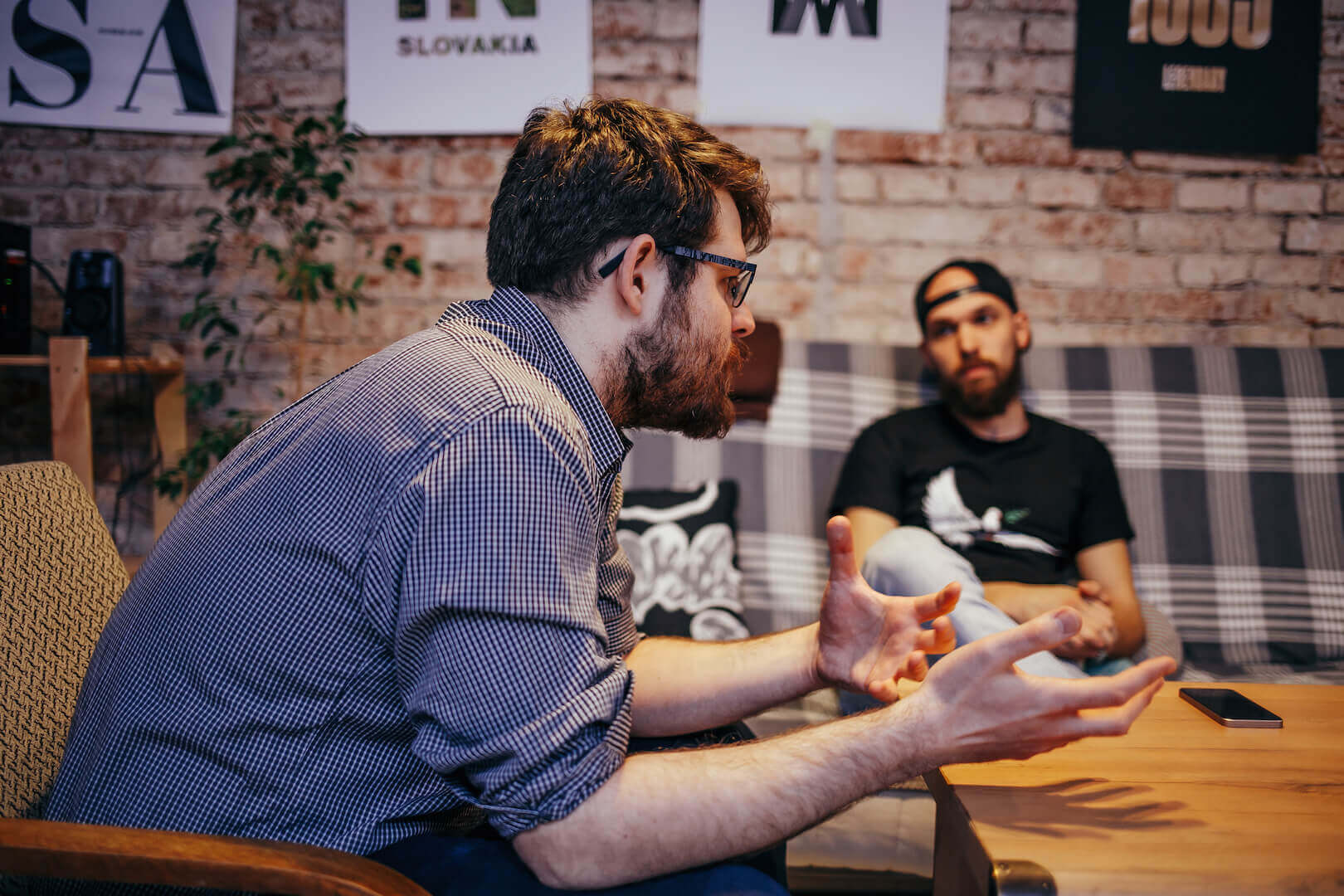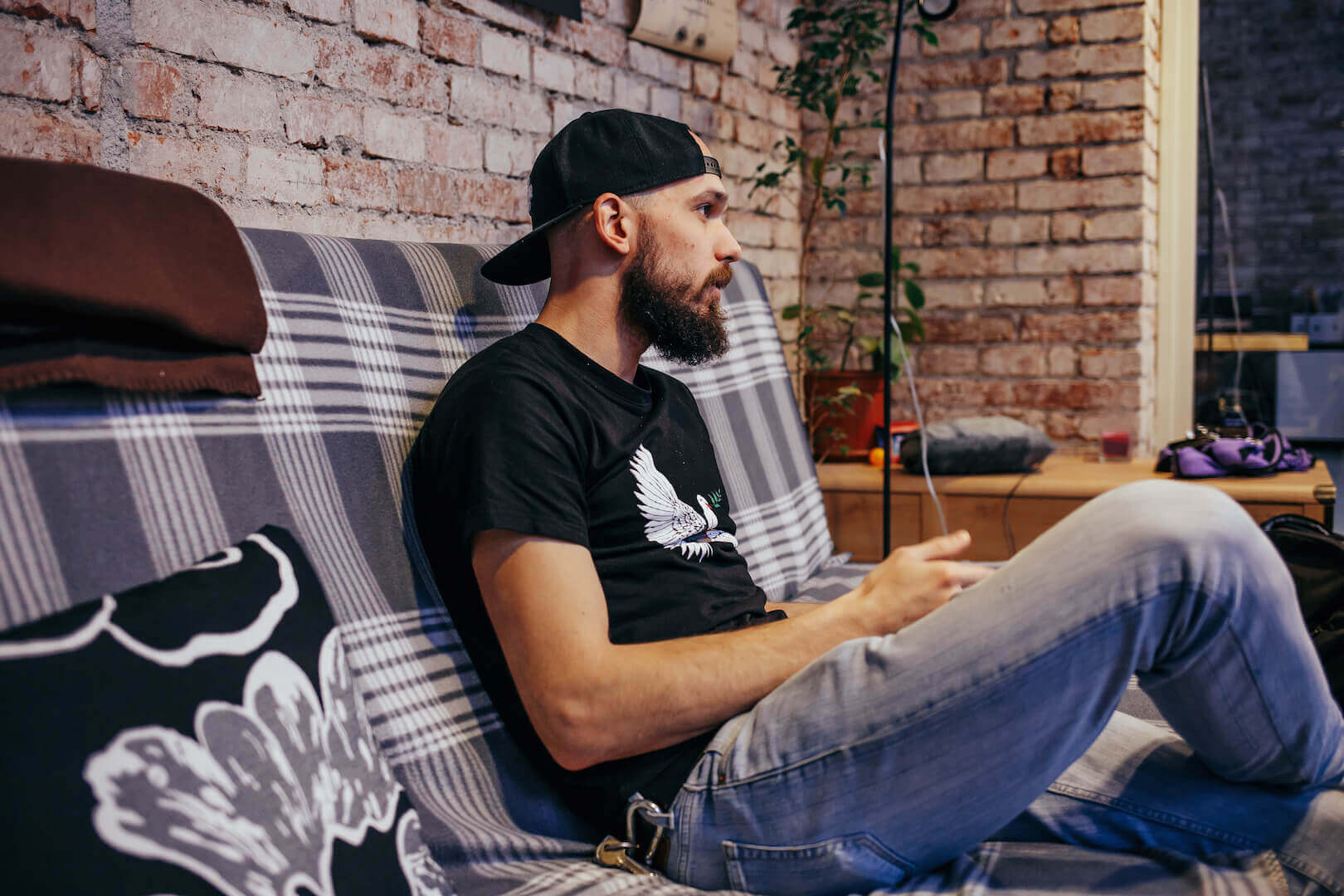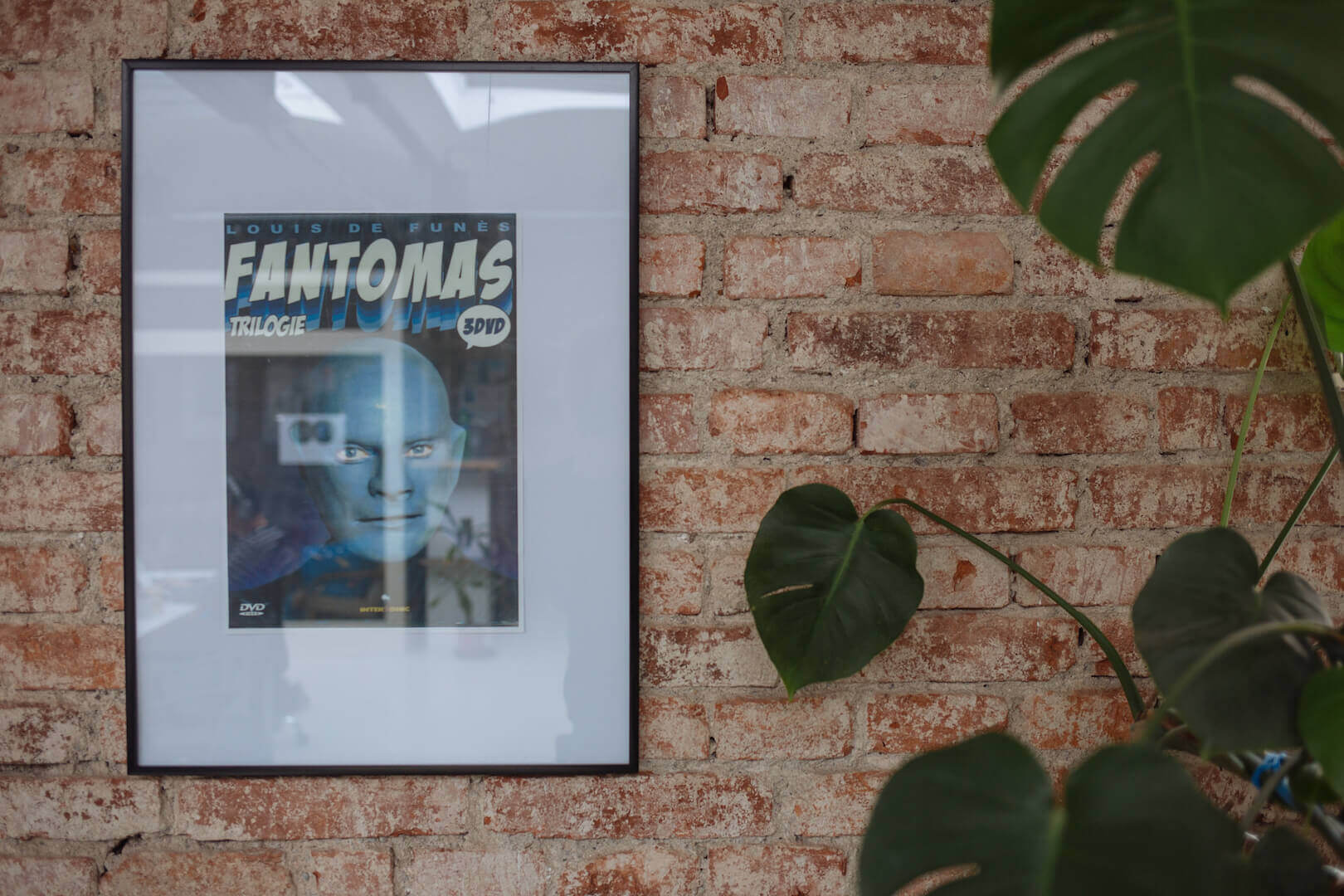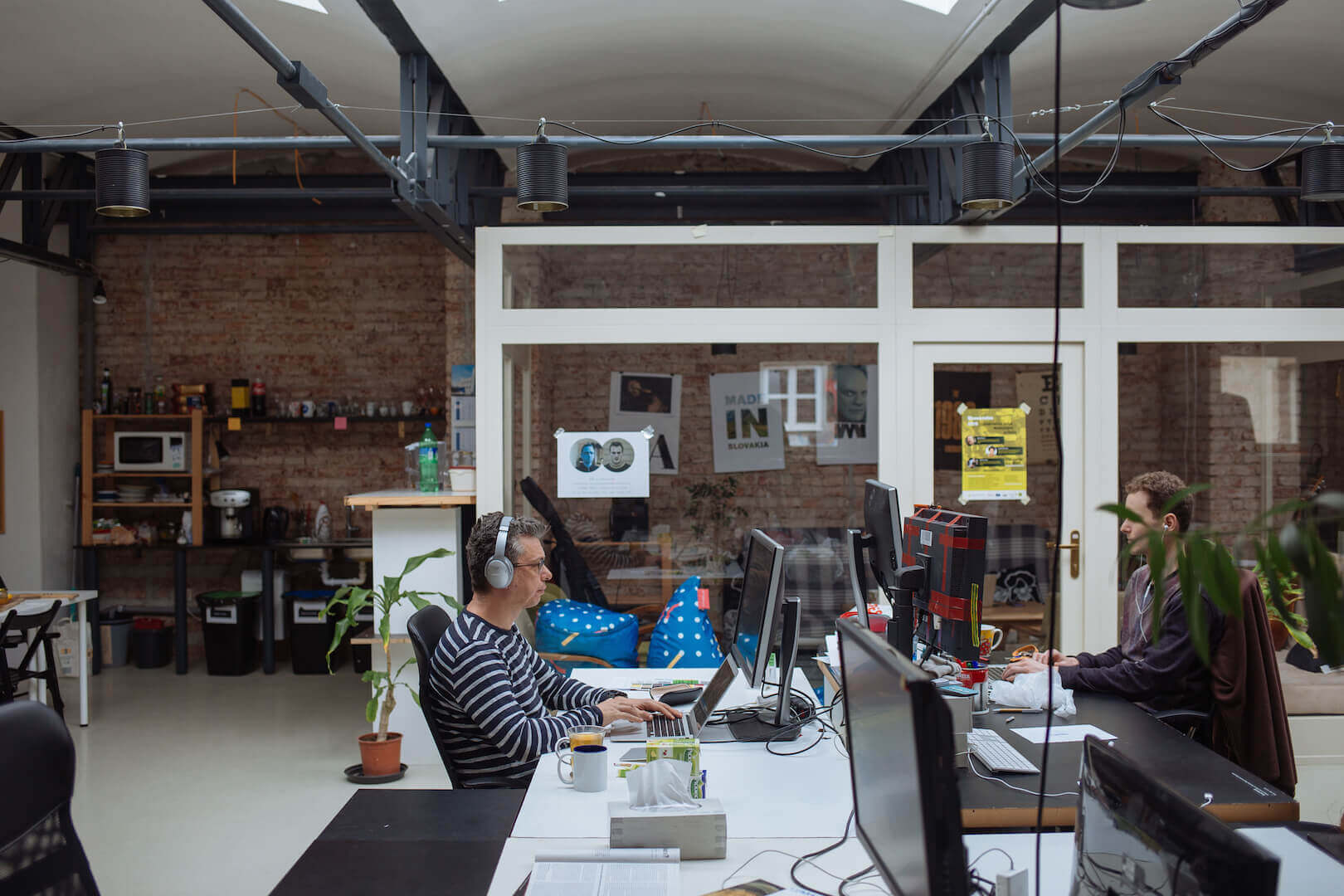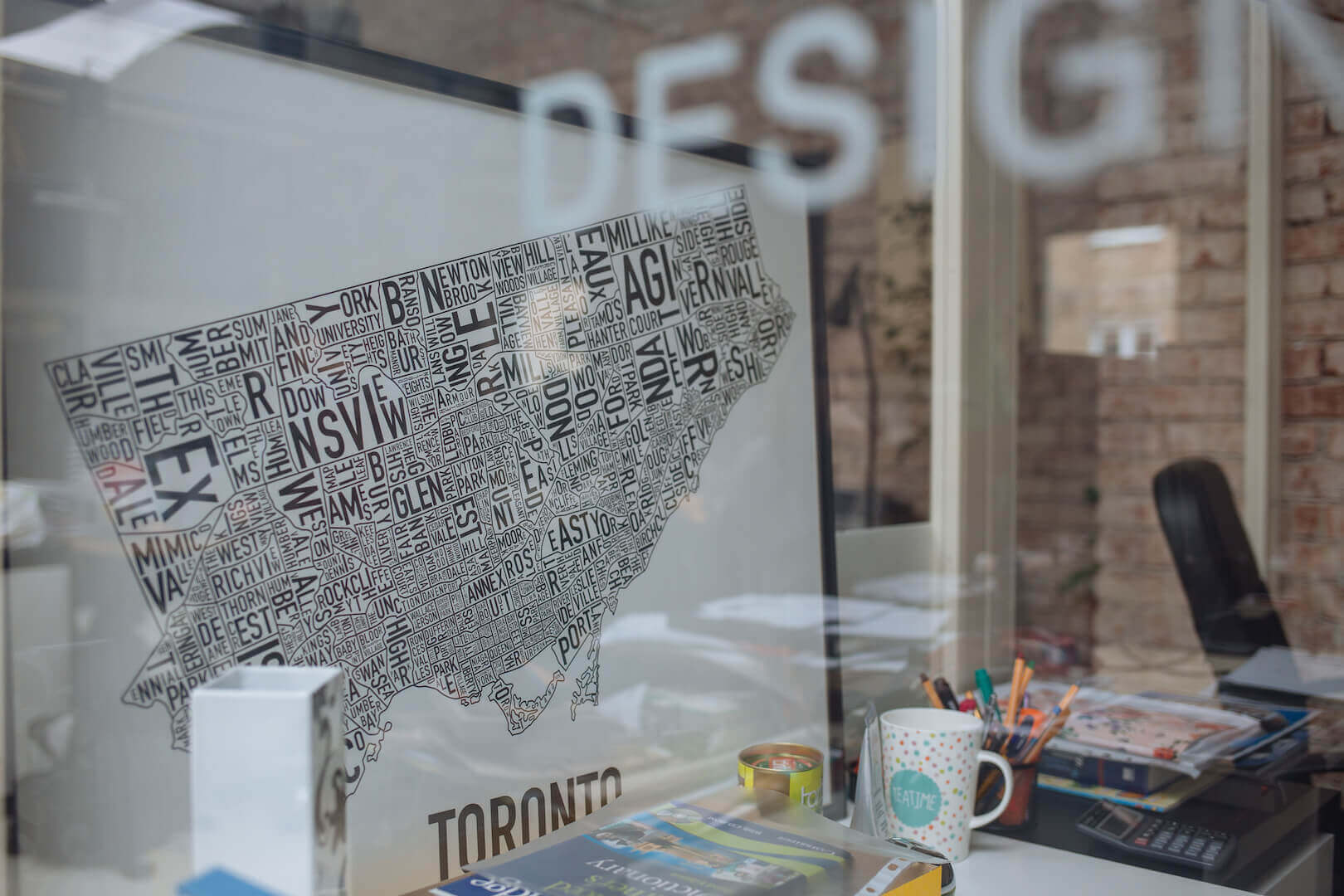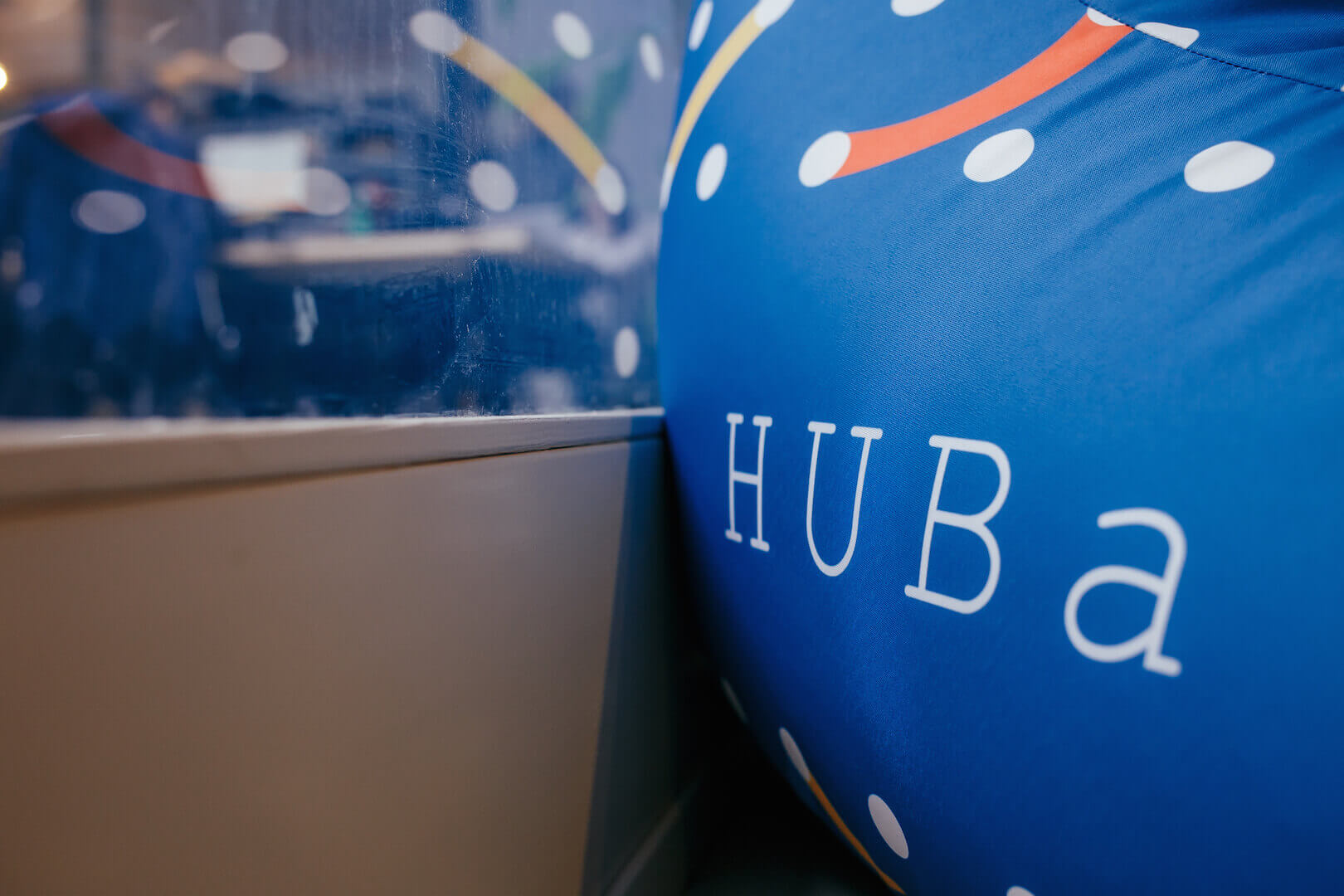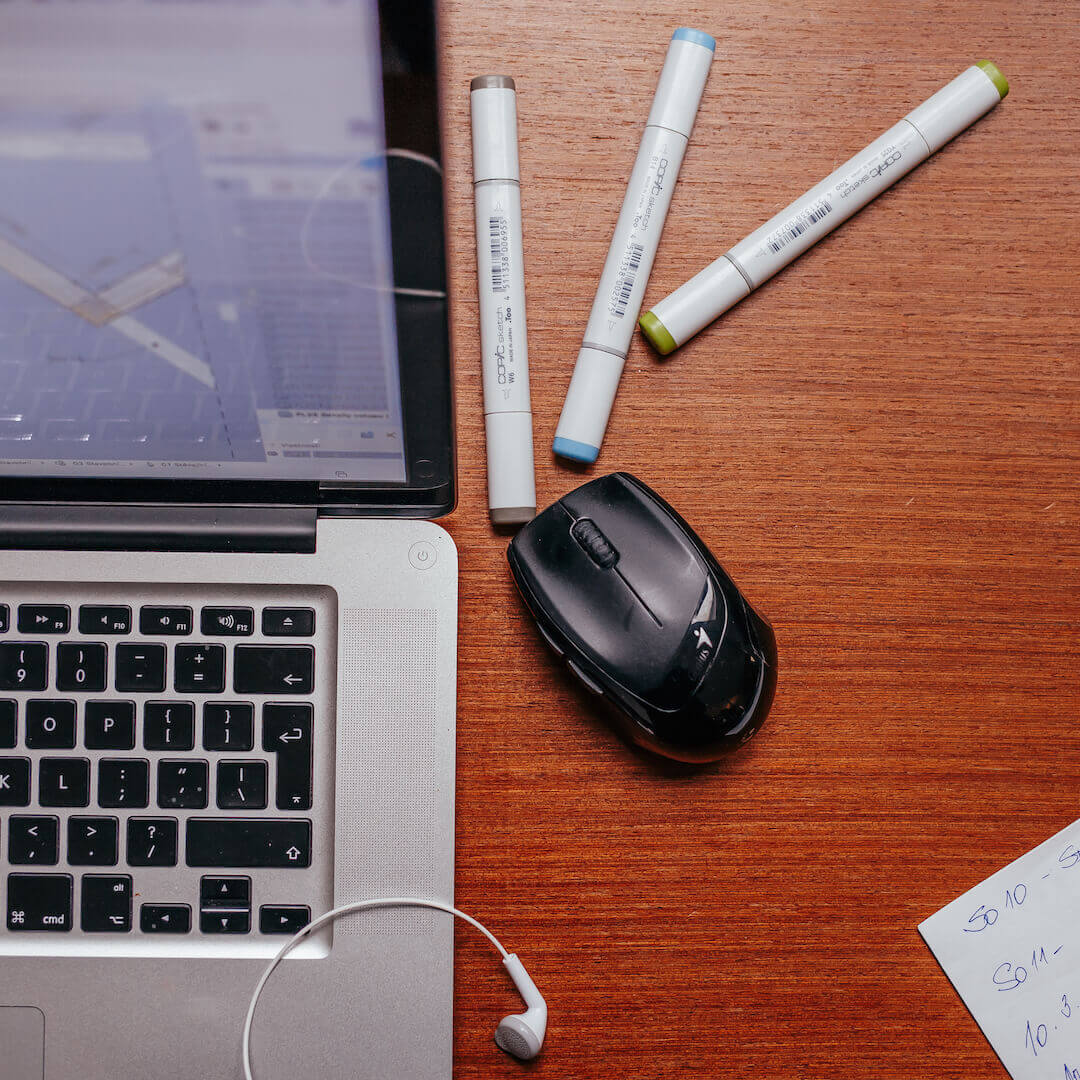Coworking is the best place for everyone who desires to create
Working from the hotel room has long been so last century. Nomadic workers on the move have been seeking the alternatives to the comfortable and rather lonesome home-offices, hotel rooms or busy cafés. If you’re one of them, coworking space is certainly the right answer to your professional needs. Read the interview with Jakub Ivančo and Boris Kriško on the role of one exemplary coworking Hub in Slovakia, why it is always fully occupied and why you should definitively try one.
What is the role of coworking nowadays?
Kubo: Coworking creates communities. It’s where people meet and cooperate. A photographer, an artist, a web designer — they all help each other and a community is born. For people who are on their own, not working for a company or a corporation and not having resources for marketing campaigns, coworking is a way to promote their work. The people who run coworking spaces, on the other hand, make lives easier for their clients. They take care of the space itself, services, the equipment and so on, to make sure that their clients have all they need to do their work, follow their dreams and be creative. After all, that’s what we’d all love to do.
Boris: Since I’m here every day, I can see how friendships are formed and keep growing. We are no longer the only ones to organise events. The Christmas party, for instance, was organised by Lukáš. Karol, even though he is no longer a member of our coworking space, organised a hiking trip for us. It depends. Some coworking spaces focus more on education and workshops, which is also an inspiration for us going forward.
Kubo: I’d also like to add that, in addition to working on their own projects, our clients come up with ideas to work on together. Creative people find colleagues in coworking spaces. Some even come here looking for people from various walks of life to help them with their projects, knowing that this is the place to go.
Most people in HUB work in creative industries. What does this concept mean to you?
Boris: I believe it‘s the future of Slovakia. It’s time to leave factories and become designers, architects, developers … That’s how I see the future, especially in Košice. A large portion of Slovakia is dependent on the automotive industry, but Košice is currently dominated by the IT sector and the related creative industries.
Kubo: Creative industries also offer an alternative to traditional workplaces through creativity and intellectual work. Košice has always been home to creative industries but it was the 2013 European Capital of Culture project that provided the impulse for a real creative boom. Today, we can see people coming from this sphere and taking up leading positions all around the world.
Is this what you’d missed in Košice and therefore decided to start HUBa?
Kubo: A coworking space had been a part of the Tabačka project even before the reconstruction of the old tobacco factory took off. Peter Radkoff, the director of Tabačka, asked Pali Meszáros, a colleague of mine, who had had some prior experience with coworking spaces, to prepare the basic HUB concept. I was working for Tabačka as a project manager at the time, so we started working on this project together. My role was to take care of the more pragmatic aspects, while Pali was in charge of design and the community. We had a clear idea of a space that we ourselves would enjoy. At the same time, we were looking for a platform for a think tank and for projects that would contribute to the development of the public space.
What would you say is the main motivation for people to give up their jobs and start freelancing at your coworking space?
Boris: The motivation varies. Some people are looking for a different type of quality or freedom. Others may be fed up with writing reports for their boss or with working for a corporation. Some might even detest corporations as such. And they all find home with us. (Laughs)
Kubo: I believe it’s a dream come true. It takes courage and self-reflection to realise what it is you’re good at and what needs improvement but ultimately, that’s what we all want. We all want to be creative, whether it’s crafts or intellectual pursuits. The system we all live in tries to push us in the direction of more typical jobs, which is only natural but, as HUB shows, there’s always an alternative.
HUB is also one of The Invisible Hotel’s partners. What can our guests look forward to in your coworking space?
Boris: Whenever I travel, rather than booking a hotel and lying on the beach, I try to meet local people, get to know them and learn about things they do and how they do them. When someone comes to our coworking space, I believe they can get to know all our clients within an hour. That’s a chance to become a part of the local creative community, at least for a short time.
Kubo: Just like The Invisible Hotel is not typical, coworking is considered a modern workspace for freelances. Whoever needs a place to work while travelling that offers top services, HUB is the place to go. The clients of The Invisible Hotel will definitely enjoy HUB and the people who work there. Sitting in the HUB is definitely different than being on your own at a coffee shop and working at your computer.
Are you often on the move? Longing to create?V isit Invisible Hotel and get the free desk at the HUBa Coworking with your stay. Book your room now at the invisiblehotel.sk.

